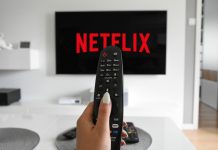It looks like a race between COVID-19 vaccinations and COVID-19 infections in Arkansas. Arkansas has seen a fairly drastic spike in its COVID-19 infection rates in the past few weeks. According to the Arkansas Democrat-Gazette, “Arkansas’ count of coronavirus cases rose Friday by 1,342 — the second-highest daily increase since February” while “[T]he state’s death toll from the virus since March 2020, as tracked by the Arkansas Department of Health, rose by 11, to 5,992.” Hospitalizations, including patients on ventilators, are sharply rising to levels last seen in February.
There are some tragic cases involving young people, such as 13-year old Caia Morris Cooper, who was admitted to Arkansas Children’s Hospital in Little Rock and was put on a ventilator and later intubated due to complications of her COVID-19 infection. I say tragic because her mother, Angela Morris, who was skeptical about the vaccines, opted out for herself and her daughter. Angela recently tweeted, “I just want people to get their kids their shots. Everybody just needs to get the shot. It’s a much better route than the one we’re in.”
And people piled on her, with tweets such as “This is why the education of the population 2 be informed 2 make intelligent choices is even more important 4 ppl who take on the responsibility 4 the young under their care! This woman’s ignorance is basically responsible 4 the possibility of the death of her own child!” Of course, some defended Morris in the Twitterverse, stating “People need to get vaccinated. Desperately. It’s frustrating. It kills me. But if your response to a suffering mother is to gloat about their stupidity, you need to take a long look at yourself.” But the unwarranted negativity toward Ms. Morris and her suffering is disturbing.

As I write this article, my wife and I are just 18 hours past getting my second COVID-19 vaccination, which is honestly kind of late in the game, meaning we took chances we probably shouldn’t have and should gotten the shots earlier. We were ourselves initially skeptical about the vaccines, which although approved by the FDA via emergency status, were never rigorously tested in the manner most other medications and vaccines typically are. For us, it was not so much ignorance, as fear and mistrust. And fear may not be logical, but it is powerful.
There are cultural, if not anthropological reasons for this, as research shows. But even with regard to fear, it gets complex. As Arthur Allen, author of Vaccine: The Controversial Story of Medicine’s Greatest Lifesaver states, “It’s not like people fear all vaccines for the same reasons. Throughout history, it was common to believe that vaccines were violating God’s way or perhaps violating the sanctuary of the body”
And modern myths pervade our culture as well. Most people remember the 1998 study published in The Lancet by Dr. Andrew Wakefield that posited a causal link between measles, mumps, rubella (MMR) vaccine and the increased incidence of childhood autism. This study, which quickly garnered media attention, touched off a resurgence in anti vaccination efforts across the country. And although the study was repeatedly debunked and refuted, including a series of articles by The British Medical Journal that exposed Dr. Wakefield’s scheme to turn the public’s fear into a money making venture via Carmel Healthcare Ltd, many people remained worried.
The resistance gets even more volatile when you add a racial component. The study Age at first measles-mumps-rubella vaccination in children with autism and school-matched control subjects: a population-based study in metropolitan Atlanta MMR, by Dr. Frank DeStefano and Dr. William Thompson claimed that “vaccination is associated with an increased risk of autism in African-American boys and that the CDC [had] spent the last 13 years covering this linkage up.” And there was data that was omitted from the final report, giving credence to a cover up. However, it turned out that upon closer security, much like the Wakefield’s study, this study was
poorly designed and that the conclusions were correlative in nature, not causative.
Of course, there are darker historical and racial dynamics at play as well. Black people have been used as unwitting guinea pigs in medical experimentation, the most infamous case being The Tuskegee Syphilis Study in which Black men were denied medical intervention so the authors of the research could collect data on the nature and course of untreated syphilis, even as the unknowing subjects became extremely ill and died.
And while COVID-19 vaccinations have no connections to the horrors of the Tuskegee Study, and modern Autism studies have shown no causative linkage between vaccinations and autism, the remnants of fear remain deeply rooted. So, the resistance to vaccinations continues, despite science proving otherwise, and recent data indicates the phenomenon of vaccine hesitancy is worsening. A 2019 Gallup poll shows 84% of Americans said they think it’s extremely or very important that parents get their children vaccinated, which is down from 94% in 2001, a significant decrease.
These are all rational lines of reasoning I can get my arms around. Americans are inherently distrustful, and this distrust has real, and sometimes devastating consequences when battling a pandemic. And we should point this out as a matter of public policy and safety.
But the same is not true of Ms. Morris and her daughter, because as much as I recognize Ms. Morris should have taken herself and her daughter to get the vaccine, I cannot, and will not condemn her, because she has already condemned herself. I can only imagine the guilt and shame she is feeling, knowing these emotions are only secondary to the unrelenting anxiety and sadness as she watches her daughter fight for her life. It is one thing to point out people’s foibles and cite science and data to bolster arguments against vaccine hesitancy; it is quite another to viciously attack people at their lowest point.
Collectively, perhaps we need to be better about COVID-19 vaccinations, but we also need to be better about how we treat other people, even, and maybe especially, when they make serious mistakes. It’s called grace. And the nature and severity of her mistake is precisely why Ms. Morris deserves it even more so. As Canadian-American Bible teacher, theologian, pastor, and author Harry A. Ironside put it, “Grace is the very opposite of merit… Grace is not only undeserved favor, but it is favor, shown to the one who has deserved the very opposite.”
Apparently some people have vaccinated themselves against grace, and need to “take a long look” at themselves.
At Newsweed.com, we adhere to three simple principles: truth, balance, and relatability. Our articles, podcasts, and videos strive to present content in an accurate, fair, yet compelling and timely manner. We avoid pushing personal or ideological agendas because our only agenda is creating quality content for our audience, whom we are here to serve. That is why our motto is ”Rolling with the times, straining for the truth.”
Your opinion matters. Please share your thoughts in our survey so that Newsweed can better serve you.
Charles Bukowski, the Los Angeles beat poet that captured the depravity of American urban life once said, “There is something about writing poetry that brings a man close to the cliff’s edge.” Newsweed is proud to stand in solidarity and offer you a chance to get close to the cliff’s edge with our first Power of Poetry Contest. Are you a budding bard, a versatile versifier, a rhyming regaler? Do you march to the beat of iambic pentameter, or flow like a river with free verse? If so, here’s your opportunity to put your mad poetic chops to the test. Enter our poetry contest for bragging rights and an opportunity to win some cash!






